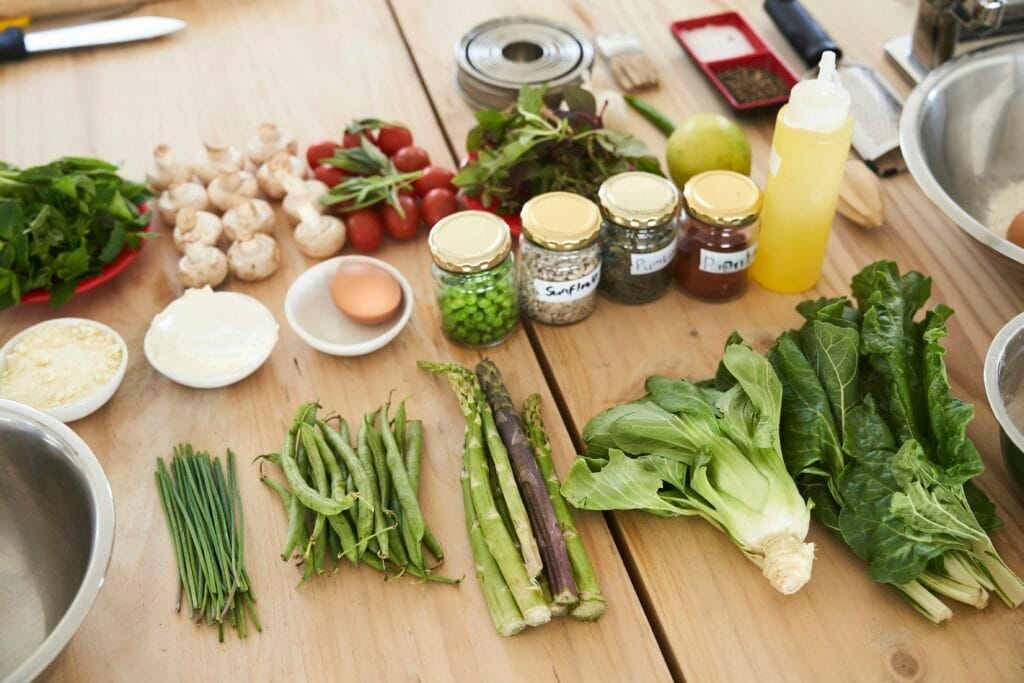Frequently Asked Questions

Find quick answers to common questions about our seeds, ordering process, and growing advice. We’re here to make growing your garden easy, enjoyable, and successful from the very first sprout.
How do you ensure seed quality?
Our seeds are stored in a climate-controlled environment and undergo regular germination testing to maintain high-quality standards.
Do you offer organic seeds?
Yes! We carry a selection of organic seeds that meet rigorous quality standards for natural and sustainable gardening.
What fertilizers do you recommend?
We offer a variety of soil amendments, including compost-based and organic fertilizers, tailored to different soil needs.
Can I get advice on my garden?
Absolutely! Our team is happy to provide guidance on seed selection, soil health, and gardening best practices.
What are Open-Pollinated seeds?
Open-pollinated seeds come from plants that are naturally pollinated by wind, insects, birds, or other natural mechanisms, without deliberate human control over the process. Because the pollination occurs within the same variety, the seeds produced will generally grow into plants that closely resemble their parents in both appearance and performance. This means gardeners can save seeds from open-pollinated plants year after year and expect consistent results, making them ideal for seed saving. While all heirloom seeds are open-pollinated, not all open-pollinated seeds are heirlooms, as some are more recent varieties that haven’t been around long enough to be considered heirlooms.
What are Heirlooms?
How experts define heirlooms can vary, but they are generally at least 40-50 years old. Most heirlooms come from seed that has been handed down for generations in a particular region or area, hand-selected by gardeners for a special trait. Others may have been developed by a university a long time ago in the early days of commercial breeding. All heirloom vegetables are open-pollinated, which means they are pollinated by insects or wind without human intervention. In addition, they tend to remain stable in their characteristics from one year to the next. Many gardeners agree that most heirloom varieties boast greater flavor than that found in hybrids, especially among tomatoes.
What is a Hybrid/F1?
A hybrid vegetable is created when plant breeders intentionally cross-pollinate two different varieties of a plant, aiming to produce an offspring or hybrid, that contains the best traits of each of the parent plants. Cross-pollination is a natural process that occurs with members of the same plant species. In hybridization, pollination is carefully controlled to ensure that the right plants are crossed to achieve the desired combination of characteristics such as: Dependability, less required care, early maturity, higher yields, improved flavor, specific plant size, and better disease resistance. The offspring of a hybridized seed will not produce genetically identical seeds to their parents and are not recommended for seed saving. It is important to note that hybrids are not genetically modified organisms (GMOs) and do not present any environmental or health risks.
What is GE/GMO?
A genetically engineered plant is a plant that has had its DNA altered in a lab to produce a specific outcome. New DNA from an unrelated organism is inserted into plant cells using biotechnology techniques. These plants are also know as genetically modified organisms (GMOs).
What are Treated Seeds?
Treated seed has undergone a process, either chemical, biological, or physical, to protect it from seed or soil borne pathogens and improve crop establishment. Treatments may include fungicides, pesticides, or methods like hot water to defend against pests and diseases during early growth. This is not the same as seed coating, which often refers to physical layers added for handling or spacing. The goal of seed treatment is to give young seedlings the best possible start by minimizing threats before and during germination.
What are Emerge+ Organically Treated Seeds?
Emerge+ Seed Treatment is all-natural and works as an immune system booster, which helps the seedling emerge stronger, and fight off disease and decay. Emerge+ seed treatment contains non-food grade ingredients and seed should not be used for food, feed or oil. Emerge+ does not effect the color of your seed. We recommend planting after the soil temperature has reached 65°F.
What are Pelleted Seeds?
The white pelleting material has no adverse effect on seed or soil. Just plant them shallow in the spacing you desire and keep them moist for good germination.
What are Weight Points?
Weight points are a weight score assigned to heavier or bulkier items. The higher the weight point value, the heavier or more oversized the product. Light items—such as seed packets—usually have no weight points listed. Weight points are used only on products where the size or weight is significant enough to require special handling.
International Shipping
Berlin Seeds does not ship seeds internationally. Due to federal and international agricultural regulations, including export permitting and inspection requirements, seed orders are limited to shipment within the United States. Please contact us if you would like to make a special request.
